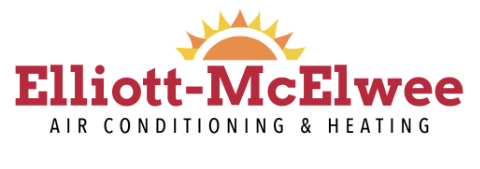Why Your Heat Pump Isn’t Changing to Cooling Mode
As the warm weather sets in, your comfort at home heavily depends on your cooling systems working seamlessly.We understand how frustrating it can be when your heat pump fails to switch from heating to cooling. If your heat pump is blowing out hot or merely room-temperature air when it should be cooling, there are several potential issues that could be at play. In this blog post, we’ll explore how heat pumps work, identify common problems, including a faulty reversing valve, and explain when it’s time to call in the professionals for heat pump repair in Egg Harbor Township, NJ.
Understanding How Heat Pumps Work
A heat pump is a versatile and efficient system used for both heating and cooling your home. It works on a simple principle of heat transfer. During the colder months, a heat pump extracts heat from the outside air or ground and transfers it indoors. Conversely, when you need cooling, the process reverses, and the heat pump pulls heat from your indoor air and releases it outside.
The key component that allows the heat pump to switch between heating and cooling is the reversing valve. This valve changes the flow direction of the refrigerant, which is pivotal in shifting the operational mode of the unit.
Common Reasons Why Heat Pumps Fail to Cool
1. Broken Reversing Valve
The most common culprit for a heat pump that fails to switch to cooling mode is a malfunctioning reversing valve. If this valve is stuck or damaged, the heat pump cannot change the direction of the refrigerant and consequently, can’t switch modes. This issue is a mechanical failure and requires professional expertise to diagnose and repair.
2. Loss of Refrigerant
Refrigerant is the lifeblood of your heat pump, essential for the heat transfer process. A leak or a drop in refrigerant levels can significantly impair the ability of your system to cool your home. If your heat pump has insufficient refrigerant, it might continue to blow warm air even in cooling mode.
3. Malfunctioning Thermostat
Sometimes the issue might not be with the heat pump itself but with the thermostat. A malfunctioning thermostat can fail to signal the heat pump to switch modes. This can be due to wiring issues, a dead battery, or simply a malfunctioning thermostat unit. It’s a less complex fix but just as crucial to address promptly.
4. Aging Heat Pump
Like any other appliance, heat pumps have a finite lifespan. An old heat pump that is nearing the end of its service life may struggle to perform efficiently. Components wear out and the system as a whole becomes less reliable. If your heat pump is old and consistently failing to cool your home, it might be time to consider a replacement.
Call for Professional Service
If your heat pump is not cooling, it’s best to address the issue so to avoid discomfort during the warm months. Whether it’s repairing a faulty reversing valve, fixing a refrigerant leak, replacing a malfunctioning thermostat, or evaluating the need for a new system, our team at Elliott-McElwee is here to help. With our expertise, we ensure that your heat pump is ready to provide you with a cool, comfortable home all summer long.
At Elliott-McElwee, Inc., your comfort is our business. And when your comfort require heat pump repairs or a replacement, just reach out to us.
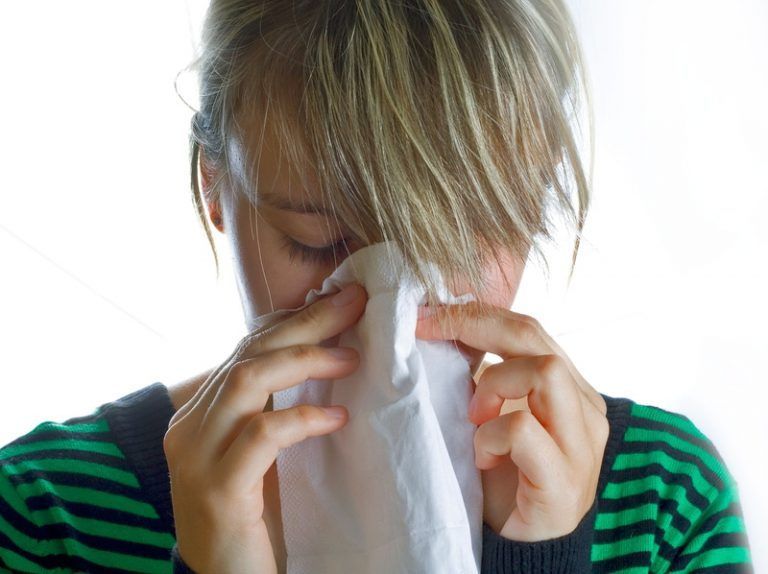
As summer begins to roll in, ensuring the quality of air in your home becomes increasingly important. At Elliott-McElwee, Inc., we’re committed to helping you and your family breathe cleaner, fresher air every day. Poor indoor air quality (IAQ) can lead to various health issues and general discomfort, but there are practical steps you can take to improve it, from simple filters to an air scrubber installation in Galloway, NJ. Here are six ways we can make your mid-year air quality better: 1. Install Air Filters One of the simplest and most effective ways to improve indoor air quality is by installing air filters. High-efficiency particulate air (HEPA) filters can trap dust, pollen, pet dander, and other allergens, preventing them from circulating through your home. Regularly replacing your air filters ensures that they continue to work effectively and improve the overall air quality in your living space. 2. Install Air Purifiers Air purifiers work alongside your HVAC system to eliminate pollutants and contaminants from the air. By installing an air purifier, you can reduce the presence of allergens, odors, and airborne bacteria. This is especially beneficial for those with allergies or respiratory issues. Our expert technicians can help you select and install the right air purifier for your home. 3. Install an Air Scrubber The Air Scrubber by Aerus doesn’t just clean the air in your living space—it freshens and purifies it as well. This innovative system uses a combination of UV light and activated carbon to reduce odors and eliminate harmful particles, such as bacteria and mold. By installing an Air Scrubber, you can reduce the risk of allergies, asthma, coughing, nose and throat irritation, headaches, and more. 4. Install a Dehumidifier or Humidifier Maintaining the right level of humidity in your home is crucial for optimal air quality. High humidity levels can promote mold growth, while low humidity can lead to dry skin and respiratory problems. By installing a dehumidifier or humidifier, you can create a comfortable indoor environment and prevent the negative effects of imbalanced humidity levels. 5. Install a Heat Recovery or Energy Recovery Ventilator (HRV/ERV) Proper ventilation is essential for maintaining good indoor air quality. Heat Recovery Ventilators (HRVs) and Energy Recovery Ventilators (ERVs) help exchange stale indoor air with fresh outdoor air while retaining temperature and humidity. This ensures a constant supply of clean, fresh air throughout your home without wasting energy. 6. Make Repairs to Damaged Ductwork Damaged ductwork can lead to poor air quality and higher energy bills. Leaky ducts can allow pollutants, allergens, and moisture to enter your home, compromising the air quality. At Elliott-McElwee, Inc., we provide comprehensive ductwork inspections and repairs to ensure your HVAC system operates efficiently and your indoor air quality is at its best. Improving your mid-year air quality doesn’t have to be a complicated task. With the right products and services from Elliott-McElwee, Inc., you can breathe easier and enjoy a healthier home. Contact us today to schedule an appointment and discover how we can transform your home’s air quality for the better! At Elliott-McElwee, Inc., your comfort is our business. Rely on us for the best indoor air quality solutions.
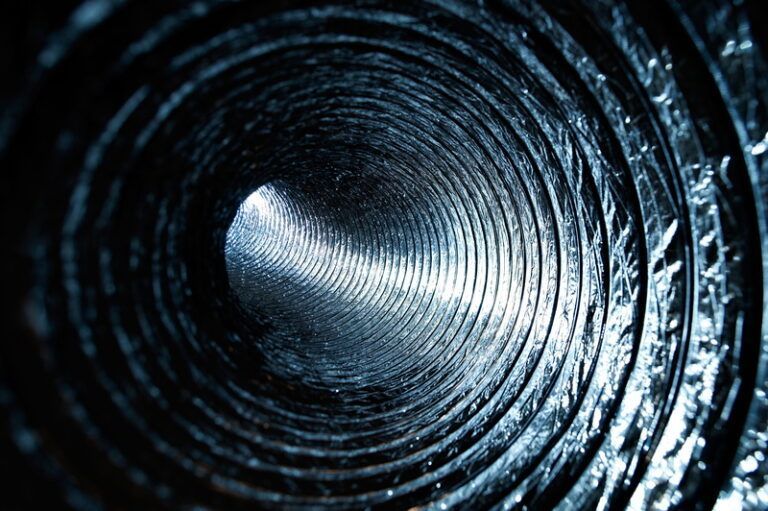
Are you feeling a draft, noticing unusually high utility bills, or sensing that your HVAC system just isn’t performing as well as it should? It’s possible your home is suffering from leaky air ducts. At Elliott-McElwee, we understand the critical role your HVAC system plays in maintaining a comfortable and energy-efficient home. This is why we’ve compiled a guide to help you identify the telltale signs of air duct leaks and the importance of professional air duct sealing in Vineland, NJ. 1. Increased Energy Bills One of the first signs of leaky air ducts is a sudden increase in your energy bills without a corresponding uptick in usage. Leaks in ductwork can cause your HVAC system to work harder than necessary, leading to inefficiencies and higher costs. If you notice your bills creeping up, it might be time to inspect your ducts for any signs of leakage. 2. Rooms That Are Difficult to Heat or Cool Do you have rooms in your home that are always too hot in the summer or too cold in the winter, regardless of how you adjust your thermostat? This uneven temperature distribution is a classic symptom of leaky air ducts. When air escapes from the ducts before it reaches its intended destination, some areas may not receive adequate heating or cooling, leading to uncomfortable living conditions. 3. Dusty Rooms After Running the HVAC System An accumulation of dust in your home, especially noticeable after running your HVAC system, can indicate leaky ducts. These leaks can pull dust and other particles from attics, crawl spaces, and between walls, distributing them throughout your home. This not only affects your indoor air quality but can also signal that your ducts are not properly sealed. 4. The HVAC System Running Longer Than Usual If your heating or cooling system is taking longer to achieve the desired temperature, this could be a sign of leaking air ducts. When conditioned air escapes through leaks, your system must operate for extended periods to meet the thermostat setting, reducing efficiency and increasing wear and tear on your HVAC equipment. 5. Visible Tears or Holes in Ductwork Sometimes, the evidence of leaky ducts is visible to the naked eye. If you can access your ductwork, look for any signs of tears, holes, or disconnected joints. These are clear indicators that your ducts are leaking air and need professional attention. Why Professional Duct Sealing is Essential Identifying the signs of leaky air ducts is the first step towards improving your home’s energy efficiency and comfort. However, addressing these issues requires a professional touch. At Elliott-McElwee, we specialize in air duct sealing services designed to enhance your HVAC system’s performance, reduce your energy bills, and improve your overall indoor air quality. Our team of experts uses the latest technologies and materials to ensure your ducts are sealed effectively, preventing air from escaping and ensuring that every room in your home is comfortable year-round. Not only does this process help you save money on energy costs, but it also extends the lifespan of your HVAC system by reducing the strain on its components. At Elliott-McElwee, Inc., your comfort is our business. Contact us to arrange for air duct sealing in the South Jersey area.
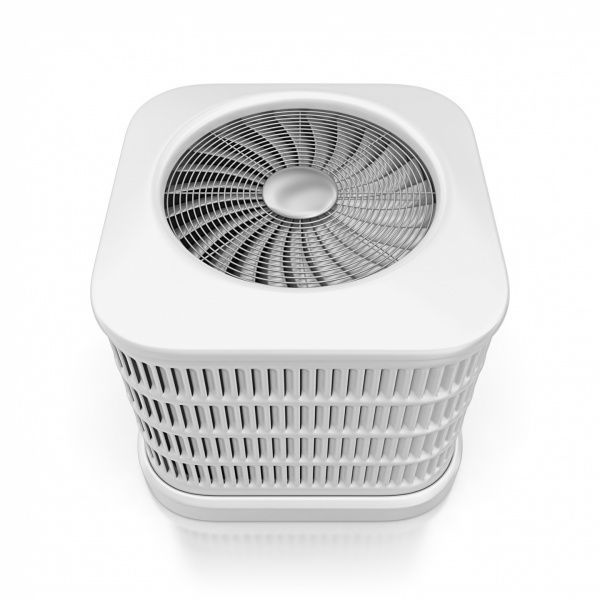
Are you finding that your air conditioning system seems to be constantly cycling on and off, leaving you puzzled and uncomfortable? This behavior, known as short-cycling, can be a frustrating experience for homeowners. Not only does it disrupt the cooling process, but it can also indicate underlying issues within your HVAC system that require attention. Today, we’ll delve into what short-cycling is, why it’s a cause for concern, and how Elliott-McElwee can help you resolve this issue promptly and effectively with air conditioning repair in Egg Harbor Township, NJ. What Is Short-Cycling? Short-cycling occurs when your air conditioner turns on and off more frequently than usual, often in short bursts rather than running through complete cooling cycles. This can lead to inefficient cooling and increased wear and tear on your system. Common signs of short-cycling include rapid temperature fluctuations, unusually high energy bills, and reduced indoor comfort. Causes of Short-Cycling Short-cycling can stem from various underlying issues within your HVAC system. Some common causes include: Improperly sized HVAC system: If your air conditioner is either too large or too small for your home’s cooling needs, it may short cycle as it struggles to maintain a consistent temperature. Clogged air filters: Dirty or clogged air filters restrict airflow, causing your system to overheat and cycle more frequently. Refrigerant leaks: Low refrigerant levels can disrupt the cooling process, leading to short cycling and reduced efficiency. Thermostat issues: Malfunctioning thermostats can cause your AC system to cycle on and off erratically, resulting in short-cycling. Electrical problems: Faulty wiring or damaged electrical components can interfere with the proper functioning of your HVAC system, leading to short-cycling. Dirty condenser coils: Accumulated dirt and debris on your condenser coils can impede heat transfer, causing your system to short-cycle as it struggles to cool your home effectively. Why Short-Cycling Is Bad for Your AC Short-cycling not only compromises the efficiency of your air conditioning system but also poses several risks to its overall health and longevity. Some reasons why short-cycling is detrimental include: Increased wear and tear on the system: Frequent cycling puts additional strain on your HVAC components, leading to premature wear and potential breakdowns. Reduced energy efficiency: Short-cycling consumes more energy than normal operation, resulting in higher utility bills and wasted resources. Potential for costly repairs: Ignoring short-cycling can lead to more severe damage to your HVAC system, necessitating expensive repairs or even premature replacement. Impact on indoor comfort and air quality: Short-cycling can lead to uneven cooling, poor humidity control, and compromised indoor air quality, making your home less comfortable and healthy. We understand the importance of a properly functioning HVAC system for your comfort and well-being. Our team of experienced technicians is equipped to diagnose and resolve short cycling issues efficiently and effectively. When you choose Elliott-McElwee for your HVAC needs, you can expect experienced technicians, comprehensive inspection and troubleshooting, professional recommendations and solutions, and timely repairs that solve the problem at the root. When you’re ready to address your short cycling issue and restore comfort to your home, contact Elliott-McElwee to schedule a consultation with one of our experienced HVAC technicians. At Elliott-McElwee, Inc., your comfort is our business. Contact us for AC repair and any other HVAC help you need!

When temperatures start to rise in the spring, homeowners across the nation gear up for the warmer seasons. At Elliott-McElwee, Inc., we understand the importance of maintaining your HVAC system to ensure optimal performance and comfort throughout the year. In this blog post, we’ll delve into the myriad benefits of annual AC maintenance and why investing in our planned service agreements can make a substantial difference in your home’s efficiency and your peace of mind. We’re your best choice for air conditioning service in Galloway, NJ. Increased Energy Efficiency One of the primary advantages of regular HVAC maintenance is the significant boost in energy efficiency. Over time, dust, debris, and wear and tear can take a toll on your system, causing it to work harder and consume more energy. Our skilled technicians, as part of our planned service agreements, thoroughly clean and inspect your HVAC components, optimizing their performance. This results in a more energy-efficient system, ultimately lowering your utility bills and lessening your environmental impact. Prolonged Equipment Lifespan Your HVAC system represents a substantial investment in your home. By neglecting regular maintenance, you risk shortening its lifespan and facing premature replacements. Our comprehensive maintenance services not only address immediate issues but also proactively identify potential problems, allowing us to make timely repairs and ensure your equipment’s longevity. In the long run, this translates to substantial cost savings as you avoid the expenses associated with frequent replacements. Enhanced Indoor Air Quality A well-maintained HVAC system goes beyond just temperature control; it plays a crucial role in maintaining indoor air quality. Our planned service agreements include air filter replacements, duct cleaning, and thorough inspections to eliminate pollutants and allergens from your home. Improved indoor air quality not only promotes a healthier living environment but also reduces the risk of respiratory issues for you and your loved ones. Prevention of Costly Repairs The old adage “an ounce of prevention is worth a pound of cure” holds true in the world of HVAC maintenance. Regular check-ups and tune-ups allow our technicians to catch minor issues before they escalate into major, costly repairs. By investing in our planned service agreements, you’re not only ensuring the continued efficiency of your HVAC system but also safeguarding your budget from unexpected and expensive breakdowns. Improved Comfort and Performance Comfort is at the core of our HVAC services. A well-maintained system operates seamlessly, providing consistent and reliable temperature control throughout your home. Our technicians, trained to address both heating and cooling components, ensure that your system performs optimally, keeping you comfortable in every season. With our planned service agreements, you can enjoy the peace of mind that comes with knowing your HVAC system is in expert hands. Priority Scheduling and Discounts Enrolling in our annual planned service agreements comes with exclusive perks. As a valued subscriber, you’ll enjoy priority scheduling for routine maintenance visits, ensuring that your system is serviced promptly at your convenience. Additionally, our maintenance plan members receive special discounts on repairs, replacements, and new installations, providing you with cost-effective solutions for all your HVAC needs. How to Get Started Ready to experience the numerous benefits of annual AC maintenance? Getting started is easy. Visit our website or contact our friendly customer service team to learn more about our planned service agreements and enroll today. Take the proactive step towards a more efficient, reliable, and comfortable home environment. At Elliott-McElwee, Inc., your comfort is our business. Contact us today to arrange for your annual spring AC tune-up and inspection.

People are more concerned about the air they breathe in their homes than ever before. And they have good reasons to be concerned. Poor air quality is a major source of health problems in the country. Air pollution causes approximately 4.2 million premature deaths every year and can lead to heart problems, lung cancer, asthma. It affects people of all ages, with a heightened impact on children and the elderly. We’ve often had people ask us if there are differences in air pollution based on the seasons. Is the summer heat a worse time for pollution, or is it winter cold? We can answer this question, but there’s a larger truth we want to get to as well. Follow along as we explore this question and air pollution in general. Summer Air Pollution During the heat of summer, we rely on air conditioning and our electrical usage increases. This leads to higher energy consumption, primarily of fossil fuels. Higher temperatures also create specific atmospheric conditions that will worsen smog because they boost the formation of ground-level ozone. Summer is also a season with a higher number of fires, which create some of the most harmful air quality conditions possible. Winter Air Pollution The situation with air pollution changes in lower temperatures. Now homes and businesses rely more on heating systems, and the most common heating systems burn fossil fuels. This includes burning fire in fireplaces. Because people are much less likely to open their windows for ventilation during winter, more polluted air gets trapped indoors. There are winter atmospheric conditions that trap pollutants closer to the ground and create a stagnant and polluted atmosphere. Warm air rises and cold air sinks, and thermal inversions during winter trap the colder and more pollutant-filled air closer to the ground. The air in winter is drier, and dry air also holds the particles of air pollution better. Dry air lowers the chance of rain, which is helpful in cleansing the air of pollutants. Winter Is Worse, However… Studies have shown that winter air pollution is more severe because of the increased use of heating systems and the thermal inversions that trap polluted air low to the ground. But this data can be deceptive. While winter air pollution may be statistically worse, it doesn’t mean that the summer is clear and easy breathing all the time. Unfortunately, because so many homes are well-insulated against the outside, they trap pollutants indoors all around the year. Summer has its own challenges for healthy air, as do spring and fall. There’s no season when you can expect to escape from the potential for harmful air inside your house. The Importance of Air Purification Systems. In the face of the year-round challenges to air quality, we recommend you to active steps to protect your home’s air. One of the best solutions is an air purifier installation in Galloway, NJ. Air purification systems effectively remove pollutants for cleaner and healthier indoor air all year. You enjoy benefits ranging from better respiratory health to a lessening of the spread of illnesses Finding the right air purifier and air filters for your home is a job you can trust to our team. We’ll see that you have the indoor air quality solution that works for you. At Elliott-McElwee, Inc., your comfort is our business. Call us today for indoor air quality services that make a difference in all four seasons.
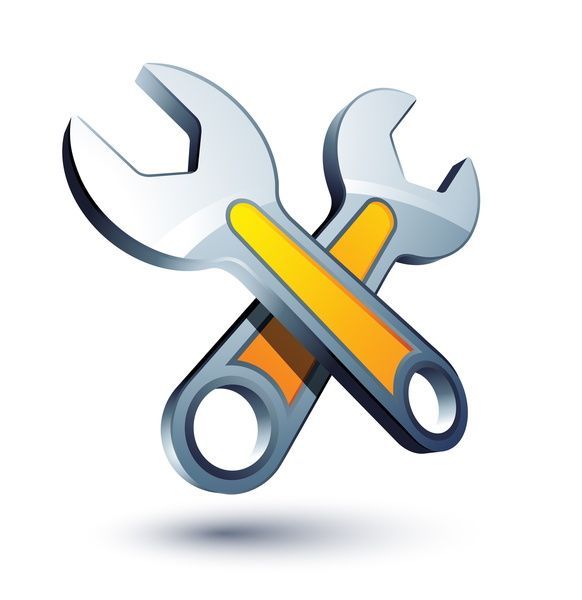
There are several different types of central heating systems for homes: furnaces, boilers, heat pumps, and ductless mini splits are among the most common, and our technicians work on all of them. When you’ve got trouble with heating your home, you can rely on us for heating repair in Egg Harbor Township, NJ. To give you a better idea of the different types of heating systems and the sort of work we do, we’re going to look at several of the most common repairs we perform on each of these different heaters. Furnaces Most homes have either a gas-powered furnace or an electric furnace, and repairs will differ between them. Both often need service to repair the blower motor that moves air around the heating elements/heat exchanger. Common repairs we do for gas furnaces involve issues with gas flow and gas safety. A gas furnace can sometimes have difficulty igniting its burners, which may require us to replace the ignition system, clean the burner, or repair one of the safety mechanisms like the flame sensor. Any repairs done to a gas furnace need to be executed with special precision and caution to ensure safety—this is why you must never trust gas furnace repairs to anyone who isn’t certified for the job. With electric furnaces, the most common issue we encounter is with burnt-out heating elements and the sequencer that’s designed to activate the heating elements one at a time. We often need to make repairs to the control board. Boilers Fixing leaks is one of the repairs we often need to tackle with boilers: homeowners are quick to notice when a boiler is leaking, and calling us right away is the best step. We frequently make repairs to boilers’ manifolds, which is responsible for distributing the hot water to the different terminal boilers. Boilers need occasional flushes to remove sediment that may build up inside them and mechanical repairs to fix their circulator pumps. As with gas furnaces, gas boilers must have professional repair service to avoid severe safety hazards. Heat Pumps Heat pumps are extremely similar to air conditioners, and they share many of the same repairs: Sealing refrigerant leaks and recharging the lost refrigerant Cleaning the refrigerant coils Repairing or replacing motors Fixing the control board Repairing a hard-starting compressor Heat pumps have a few unique repairs from air conditioners: replacing a broken reversing valve and fixing a faulty defrosting system. These are components not found in air conditioning systems. Ductless Mini Splits These are types of heat pumps, so they have many of the same repair requirements we listed. In addition, our technicians have to deal with issues with the different wall-mounted units that make up a ductless mini split system. Leaking refrigerant or condensate moisture between one of these units can cause it to rip away from the wall. No matter the heating system your home has, you can put your full trust in our team to find what’s wrong with it and have it quickly back in working order. Your comfort is our business. Contact our team today when you need repairs for your heating system—we offer 24-hour service.
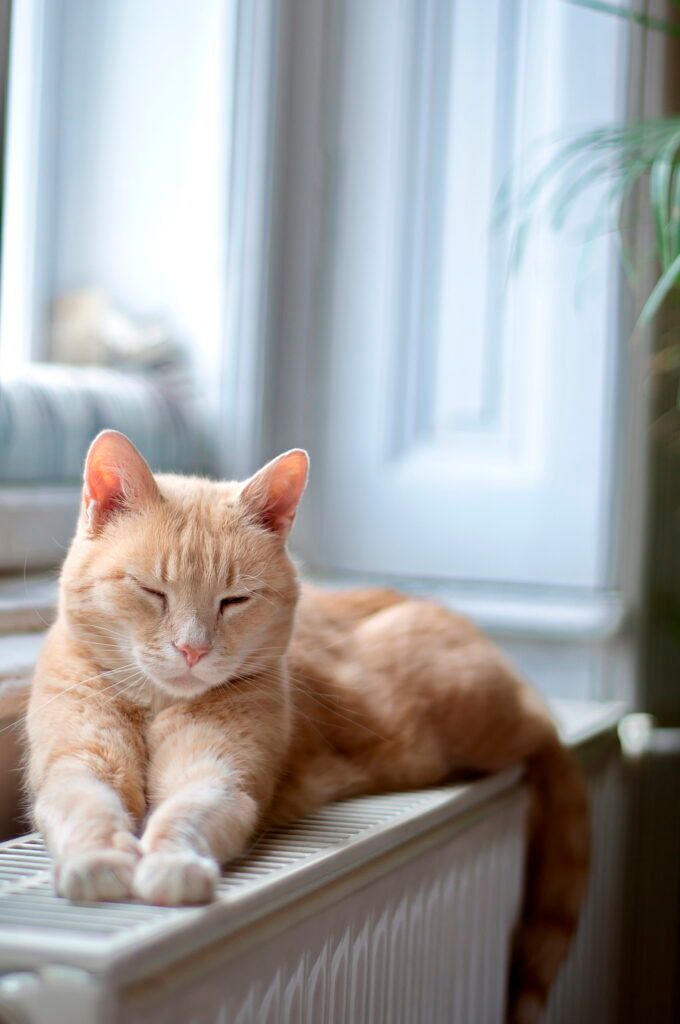
There are two basic types of heat pumps available for home installation — ducted and ductless. Once you decide between a ducted or ductless version, you can then look more closely at the models offered in each category. Keep reading to learn more about both ducted and ductless heat pumps, including the pros and cons of each type of system. Then give our team a call whether you’re interested in a more standard ducted heat pump or ductless mini splits in Vineland, NJ. We can help you decide which type of unit will best suit both your home and your family. Pros and Cons of Ductless Heat Pumps A ductless heat pump is unique from any other type of air conditioner or heater because it does not have any connected ductwork. Most forced air systems have a single central unit with attached ductwork that transfers the air into your home. A ductless mini split instead has smaller units installed in each room of your home. The air from these units blows directly into your home without any necessary ductwork. This is a huge benefit because you don’t risk losing any air through the ductwork. After all, ductwork can have holes that allow air to escape or air can get trapped instead of blowing into your home. You stand to save a lot on your monthly energy costs by having a ductless mini split. Plus, you have the added benefit of being able to customize temperatures in individual rooms across your home. But you do need to be aware that there are higher maintenance expectations with a ductless mini split since you need to care for multiple individual units instead of one large unit. Pros and Cons of Ducted Heat Pumps A ducted heat pump is considered the standard option. A ducted heat pump will be cheaper for upfront installation compared to a ductless mini split. This is especially true if you already have an existing forced air system with ductwork that does not need to be replaced. You can save a lot by not having to install the attached ductwork. You do want to keep in mind that caring for your ductwork will be an important part of maintaining your ducted heat pump. With proper maintenance, a ducted heat pump can be highly energy efficient. But if the attached ductwork develops holes that allow air to escape, your energy bills may increase while your indoor air quality decreases. How to Choose a Heat Pump Aside from considering the pros and cons of both the ductless and the ducted heat pumps, you also want to think about the efficiency ratings. Heat pumps are unique because they receive ratings for both heating and cooling since they operate as both a heater and an air conditioner. Selecting a high-efficiency model will go a long way toward energy savings and overall heating and cooling ability. When we visit for an in-home assessment, we can talk to you about efficiency ratings and how to choose a high-efficiency heat pump. Your comfort is our business. Contact our team today to schedule your appointment for heat pump installation.
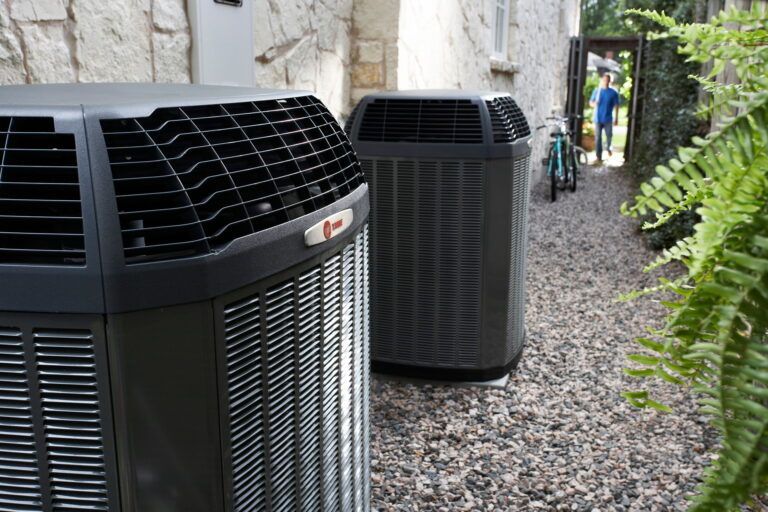
One of the best ways to stay ahead of heat pump breakdowns is to know the signs of common heat pump issues. When you notice any of them, you can give our team a call to schedule heat pump repair in Galloway, NJ before problems worsen or the system breaks down completely. Keep reading to learn more about the four most common heat pump repairs that we see and the signs of each one. Even if your heat pump is still operating to keep your home warm, these problems are ones that you don’t want to ignore. If they worsen, they could do permanent damage to your heat pump that cannot be reversed. Refrigerant Leaks If the refrigerant lines in your heat pump get damaged, refrigerant can leak out. When it does, it will make a hissing or bubbling sound depending on where the leak is at in the lines. Refrigerant leaks are dangerous because refrigerant is a chemical that can damage your home and even pose risks to your health. But a lack of refrigerant can also impact how well your heat pump is able to condition the air in your home. Refrigerant leaks need to be repaired, and then the refrigerant needs to be recharged so that there is enough refrigerant in the lines to heat and cool your home. Reversing Valve The reversing valve is a component that is completely unique to heat pumps. The reversing valve is what triggers refrigerant to move in the opposite direction to heat your home. With a standard air conditioner, refrigerant only moves in one direction to absorb heat from inside your home and transfer it outside for cooling. But when the reversing valve is active, refrigerant can move in the opposite direction inside of your heat pump to instead absorb heat from the outside and bring it into your home. The reversing valve is a fairly easy switch to replace and inexpensive repair to make. If you suspect that your heat pump is not working because the reversing valve is stuck, just give us a call to schedule an appointment for service. Ice on Evaporator Coils Heat pumps also face the risk of developing ice on the condenser coils located on the outdoor portion of the unit. When refrigerant runs through these lines outside and temperatures are cold, it’s possible for ice to develop on the coils. Ice can block refrigerant from being able to absorb heat and bring it into your home effectively. Heat pumps do have defrosters that sense when ice develops and kick in to thaw the ice out, but occasionally these defrosters malfunction and need to be fixed. Our team can thaw out the ice and address any other related issues to prevent the problem from happening again. Electrical Problems We also get a fair amount of calls for electrical problems inside of heat pumps. As the wires expand and contract with temperature changes, they can come loose. Loose electrical wires pose fire hazards and can even lead to electrical shorts. Electrical problems can be very risky, so they need to be fixed immediately. If you suspect that your heat pump is having electrical problems, you need to schedule an appointment with our team to have your heat pump looked at. Your comfort is our business. Contact the Elliott McElwee Heating and Cooling team today to schedule your appointment for heat pump service.
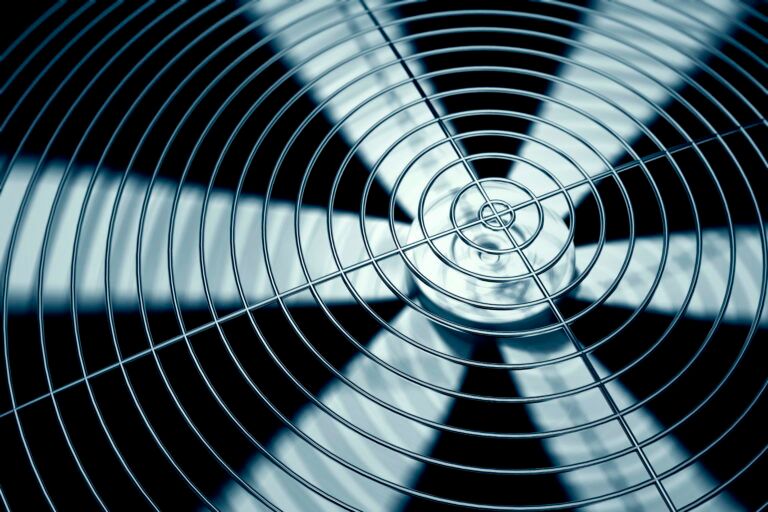
A whole house fan is a great addition to your home because it can help to improve indoor air quality and even lighten the load on your HVAC system. But even the best whole house fans experience problems from time to time. The trick is identifying these problems early and getting them fixed before your whole house fan breaks down and stops working completely. You can give our team a call when you need a whole house fan repair in Egg Harbor Township, NJ. We can complete an inspection and let you know if anything is wrong with your whole house fan that needs to be fixed. If it’s getting close to time for a replacement, we can talk to you about your options for upgrading to a newer whole house fan model. In the meantime, you can keep reading to learn more about the signs that your whole house fan may not be working the way it should. Fan Age The top factor to consider when you think your fan is not working right is the overall age. Whole house fans usually last for 10 to 15 years. So if your fan is within that age range, it may be nearing the end of its life. Noticing changes in operation with an older whole house fan can mean that it is time to consider a replacement. It’s completely normal for these fans to slow down and not work as well toward the end of their lifespan as they are wearing out. Sometimes we can make repairs to address the problems. Loud Noises Hearing loud noises come from your whole house fan is a red flag that the fan is not working correctly. Most of the time loud noises come from weak fan blades that are bowing or bending so that they knock against other components during operation. Loud noises are never a normal part of the whole house fan operation and need to be addressed immediately. If possible, turn off your whole house fan when you hear a loud noise to prevent any additional damage from continued use. Our team may be able to repair the weak blades and put them back in place so you don’t have to replace your entire unit. Changes in Indoor Air Quality If your fan is not working the way it should, you may notice a difference in your indoor air quality. A whole house fan is helping your home by bringing in fresh air from the outside and circulating it to remove stale indoor air. If the air begins to feel heavy, it may be because your whole house fan is no longer filtering in clean air. If you don’t notice a difference in how the air feels, you may begin to experience allergy or illness symptoms. Stale air inside of your home can be up to five times more polluted than the outdoor air, increasing the likelihood that you suffer from allergies or get sick. It’s a good idea to have your whole house fan checked out if you suspect that anything is wrong with it. Shutters Stuck Your whole house fan has shutters that open and close based on operating cycles. This helps to ensure proper airflow when your fan is blowing and prevents backdraft when your fan is turned off. It’s possible that these shutters are stuck in either the open or closed position. It’s especially concerning when your shutters are stuck closed because your whole house fan cannot operate to circulate airflow properly. Your comfort is our business. Contact our team today to schedule your appointment for whole house fan service.
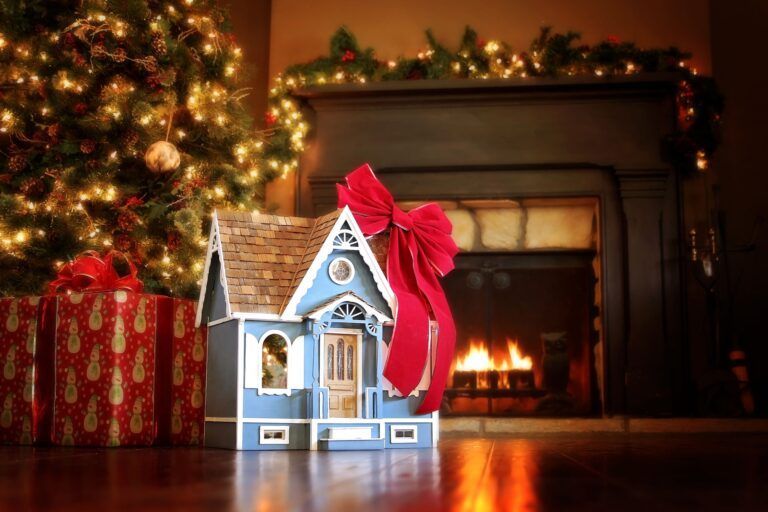
It’s the holiday season and you are likely checking off the list with gifts for everyone else. You have friends and family to do things for, but what about yourself? There’s a good chance that the best gift you could give yourself this year would be a new furnace. If you have an older furnace in your home that needs to be replaced, now is a great time to do so. And our team are the experts at furnace replacement in Vineland, NJ. You can keep reading to learn more about your heating options for replacing your furnace this winter season. Furnaces When it comes to choosing a furnace, you have both gas and electric options. You also have to consider the AFUE rating of any heater you choose. An AFUE rating of 90 or higher is considered high efficiency and offers you the potential to save a lot of money on your monthly energy costs. Choosing between a gas or electric furnace may come down to whether or not you have the availability for gas at your home. Gas furnaces are known to be more efficient and effective at providing consistent heat. Electric furnaces on the other hand are more affordable to install, even though you’re spending more on your monthly energy cost over the life of the unit. Boilers If you already have a boiler, replacing it with another boiler is a great idea. Boilers are an excellent way to provide efficient heat for your home. Water conducts heat better than air and so boilers tend to offer better overall comfort compared to a forced air furnace or heat pump. If you don’t already have a boiler, the installation process for one can be a major headache. Most homeowners only consider a boiler if they are already going through a home renovation. This is because a network of pipes has to be laid underneath the floors of your home for the boiler to channel water through as a method of heating. Heat Pumps Heat pumps are great because they offer all-in-one heating and cooling. You can choose between a ducted or ductless heat pump. The potential downside to a heat pump is that it loses efficiency when temperatures drop down and stay low. A cold-weather heat pump is a good option in cold climates. Heat pumps work by transferring heat into your home from the outside. When it’s cold outside, there is still some heat in the air that can be transferred. But the lower the temperatures get, the less heat is available, and the harder the heat pump has to work. You do have the option to install a small furnace alongside your heat pump. This dual fuel system lets you enjoy the energy efficiency of a heat pump while having some extra heating power when it is extremely cold outside. Your comfort is our business. Contact our team today to schedule your appointment for a new heating system this holiday season.

